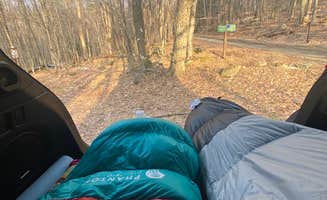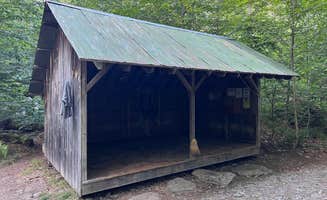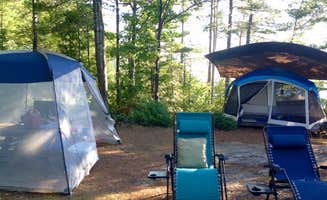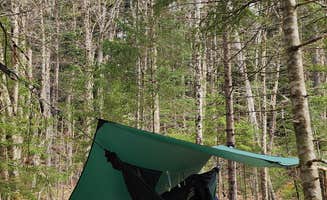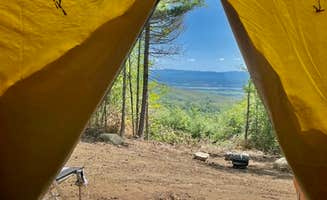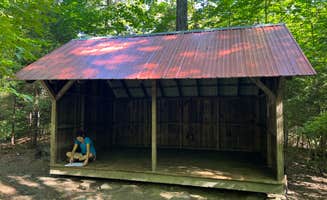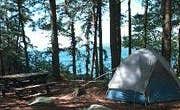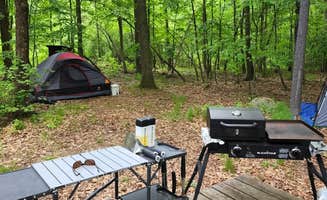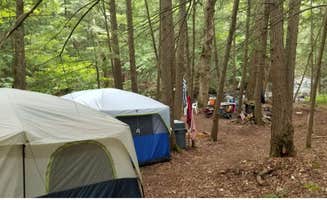Green Mountain National Forest provides numerous dispersed camping opportunities around West Rutland, Vermont. The forest terrain includes elevations ranging from 700 to 3,000 feet with multiple river systems cutting through forested valleys. Winter closures affect most forest service roads from November through April, with primitive sites typically opening as snow melts and ground conditions firm up.
What to do
River exploration: At Patterson Brookside camp, visitors can access multiple swimming spots along the riverside. "Mountain road lingers along the river. There's quite a few sites along the road. Be sure to camp at spots with established fire rings!" notes a camper.
Day hikes: The Appalachian Trail passes through several camping areas within 20 miles of West Rutland. Stony Brook Backcountry Shelter offers "a swimming hole and consistent water just a bit further down the trail" according to a hiker.
Fishing access: Multiple forest service roads provide streamside camping with fishing opportunities. The brook systems contain native trout populations. Forest roads often parallel waterways, making access straightforward for anglers.
What campers like
Backcountry isolation: The Michigan Brook Road area attracts campers seeking seclusion. According to a visitor at Michigan Brook Road Camping, "Road goes in pretty far. Some parts are muddy and very rough. Higher clearance would be advised!!!"
Natural swimming: Several camping areas feature river and pond access for swimming during summer months. One camper at Stony Brook noted they "found a decent swimming hole (could just barely submerge myself) to clean off a bit."
Wildlife viewing: The forest shelters diverse wildlife populations. At Little Rock Pond Group Camp, a visitor observed, "The pond is surprisingly warm for its altitude and it's home to two Common Loons."
What you should know
Vehicle clearance requirements: Many forest roads require higher clearance vehicles, especially during spring thaw or after rain. A reviewer at Michigan Brook advises, "Beware that in Spring the road gets muddy and quite rutted, I would not recommend driving down there with a car that is low to the ground."
No services: Most camping areas lack basic amenities. "There is no electricity, no cell coverage, not outhouses in this area. Be prepared to pack out everything you bring in," notes a Patterson Brookside camper.
Location identification: Finding specific sites can be challenging without clear markers. At Last Light on Michigan Brook, a camper suggests, "The very last spot on the right hand side. If you've reached the closed gate you've missed the site!"
Environmental impact concerns: Some areas show signs of overuse. "This area is being heavily use and some spots are being shut down from abuse, please be aware that you have a lot of impact," warns a Patterson Brookside visitor.
Tips for camping with families
River-adjacent sites: For families seeking water access, look for established sites near streams. At Bingo, a camper notes there are a "Couple of spots along the forest access road. Beautiful stream close by."
Communication limitations: Cell service is unavailable at most forest sites. A Michigan Road visitor emphasizes, "THIS LOCATION DOES NOT PROVIDE CELL PHONE SERVICE OR WIFI CONNECTION. However, if you walk to the end of upper Michigan Brook road you will have cell phone service."
Supply planning: Nearest supply points are typically 10-20 miles away in surrounding towns. Consider the Michigan Brook area which offers proximity to "a gas station along with a United States Post Office as well as a general store which also serves as a restaurant. There you can find just about anything."
Tips from RVers
Road condition awareness: Dirt forest roads can deteriorate quickly with weather changes. Michigan Brook campers note, "In Spring the road gets muddy and quite rutted" and recommend against low-clearance vehicles.
Size limitations: Most dispersed sites accommodate smaller RVs only. A Michigan Brook visitor describes it as "big enough to bring an RV if you can get it down the dirt road."
Spring access challenges: Many forest roads become impassable during spring thaw. A Michigan Brook camper warns that "the dirt road is not plowed" during winter months, limiting RV access until roads dry out.


